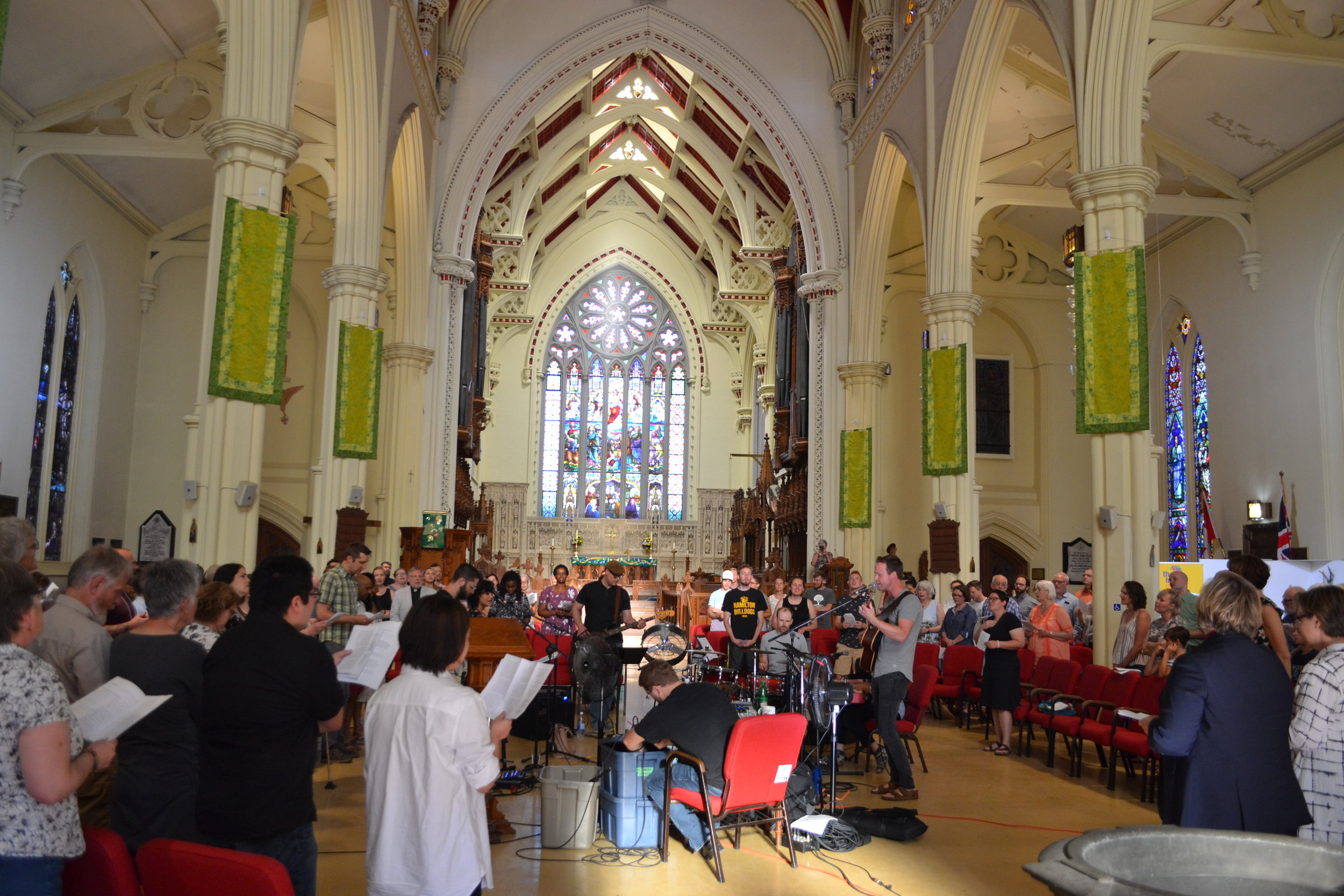Ever have those moments where you realize something is really broken inside you?
I experienced it yet again this Sunday when I got the opportunity to worship with over a hundred followers of Jesus, from more than a dozen churches across the theological and denominational spectrum, in a nearly 200 year old Cathedral in the heart of our downtown.
We began with a poetic call to worship, sang a beautiful old hymn, and then jumped into a very famous worship song called “What a Beautiful Name It Is” - a song about Jesus and how his name is quite lovely. Now I’m not the biggest fan of contemporary worship jams. I’m not a staunch traditionalist who is opposed to new praise music on a historical level or anything, I just don’t like breathy vocals or songs that sound too epic. But I wanted to have a good attitude so I sang along with every word… until the second chorus, which began with: “You didn’t want heaven without us, so Jesus you brought heaven down.”
“What a stupid line. You didn’t want heaven without us? That’s so weird and awkward to say.” I thought to myself, growing more and more frustrated. “Furthermore it’s an eschatological mess! Christians are anticipating God’s Kingdom come and not an escape to paradise.”
Then a simple sentence appeared in my mind with such clarity it must have been the very voice of God:
“Don’t be an asshole.”
Really. That’s what I heard. I looked around the room and saw multiple generations with their hands in the air, from countries all across the world, representing traditions that have often dismissed one another. Yet here they were, praying and praising together with joyful hearts and united spirits.
And I was complaining about not liking a line in a song.
So I repented. I decided to change my mind, and when the chorus came back around I raised my hands high and sang every word like I meant it. “What a beautiful name it is.”
Over the last few days I’ve thought more about this moment, and wondered if a lack of comfort is one of the greatest gifts we can bring to worship. Whenever I’ve visited another culture I’ve been told to receive their food with gratitude and humility. Eating what someone offers you is an exchange of hospitality.
Perhaps we need to grow in exchanging spiritual hospitality across our church cultures? I want to pray with charismatics, to seek justice with the peacemakers, to sing in another congregations mother tongue… even if it’s Hillsong.
To be fair, everyone had at least one moment of discomfort that evening.
In addition to the earnest praise songs there were Taize chants repeated over and over (and over). We sang a lot of old hymns and one song in Swahili. There was a land acknowledgement, prayers to break the teeth of the spiritual powers that ruled in our city, a confession of the ways we as a church have harmed LGTBQ+ people, and a surprising amount of people speaking in tongues. There were moments of formality and an African pastor who yelled at the room for being too formal.
No one felt comfortable the entire evening, but perhaps that is the point. Most of my day to day life is spent in place where I feel at home. I hang out with people who like what I like, visit websites that write articles I agree with, and hang out in coffee shops that make me feel hip.
But there is a unique power to being in a room where no one person is entirely comfortable, and instead we meet one another where we are at.
So here’s to the introverts that suffer through “passing the peace” and the kids who eat cheerios through a sermon that goes too long. Here’s to the charismatics who recite liturgy and the contemplative’s who raise their hands in worship. Here’s to the skeptics who pray anyways and the coffee-makers who prefer tea.
May we continue to offer spiritual hospitality to one another, and create a church where no one feels comfortable, but everyone belongs.
Photo by Nina Drenth









